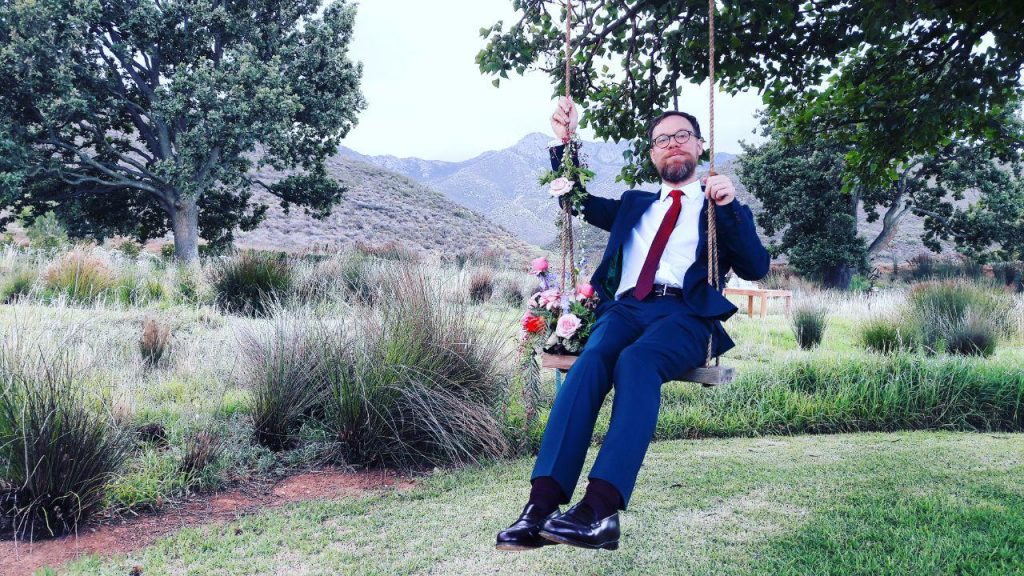South Africa and the Marriage Act
South Africa found herself in a bit of a fix running up to the late 1990's. As the legal dispensation changed to become more inclusive of real people, and less based on fictitious citizens, many of the things that people thought were "obvious", suddenly weren't relevant anymore.
It became clear that we'd arrived in a time when people lived their lives based on their intrinsic moral values rather than dictated compliance.
So - in November 1996, the new legislation was passed that would allow a Civil Union between two consenting adults. In essence, legalizing gay weddings became a way for people who are not in the main stream to have a legal marriage or legal civil partnership, with the exact same rights as the traditional marriage, but without the off-the-shelf assumption of religious compliance.
Wait - why can Marriage Officials still refuse "different" people a wedding ceremony?
So - there are two laws in action at the moment. One dates back from the 60's (and here you thought the 60's were progressive!), and the other from the late 90's. The earlier law defines a marriage as a binding contract between one man and one woman.
The newer law defines a Civil Union as being either a "marriage" or a "civil partnership". It's the same thing in terms of rights, but a civil partnership breaks away from the word "marriage" and "spouse". The newer law also includes getting married to someone else regardless of their gender.
If a Marriage Officer qualified under the old law, they can still refuse to officiate a wedding between two people based on the old law's definition of spouses. If someone qualified under the new law, they MAY NOT.
What kind of Religious Marriage Officer are you, Symi?
I'm registered under the new law, which is more in line with the new constitution. To become a marriage officer, one is put forward by a religious organisation registered with Home Affairs.
I'm registered with SAPRA, SAPRA is the South African Pagan Rights Association. It's in essence a body that fights for the legal rights of people who don't follow mainstream faiths. So - if you are Neo-Pagan, or follow the old ways, or - if you have a combination of two or more faiths that melt together to make sense in your life, you are one of those minorities for whom they will stand.
We're not a Pagan couple? Are you going to do weird stuff on our wedding day?
Because most of the Pagan regulatory bodies are really "live and let live" kind of people, you don't have to conform to a set of rules, for me to be your officiant. I don't have to do any specific rites, and no - you have Your day, Your way!
In our own home, both Ava and myself grew up with different takes on Christianity, and both of us now follow Old Traditions (different to each other), we raise our child knowing that she will weave her own way. There's no conflict, no bickering, no tug of war over what feast gets celebrated, what ritual is followed, or which deity is invoked.
We're Pagan - but our extended family not - can you smooth this over?
Quite a number of Pagans, who live and breathe their Earth-based religions, or Old Gods, may need to have things "toned down" a bit on their wedding day, to help their close family to understand and cope with what's included in the ceremony.
While your wedding day is exactly what you want it to be, you want to share the joy with your family and friends, and you want your life together to start with beauty, and blessing from everywhere!
For some of the more public events in our life together, Ava and I had a private ceremony, as well as a public celebration; this may be an option for you as well.
We will help you to choose the components of your ceremony that truly speaks of who you are, and where you are going in your relationship, what your life choices are, and how you see your future.
We want a ceremony that is different from anyone else's, because we're different - can you help?
Yes, I am honoured to officiate your union regardless of race, gender, gender orientation or faith, and Yes, I will tone up the religious component or tone it down, as it serves your special day.
The truth of your love doesn't lie in the number of guests, or how your parents like or dislike your faith, of if you're adding or taking away religious rite to or from your ceremony. The truth of your love lies in what happens in that moment when you say "I do" to each other, and - when how you keep doing, in the years that follow.

